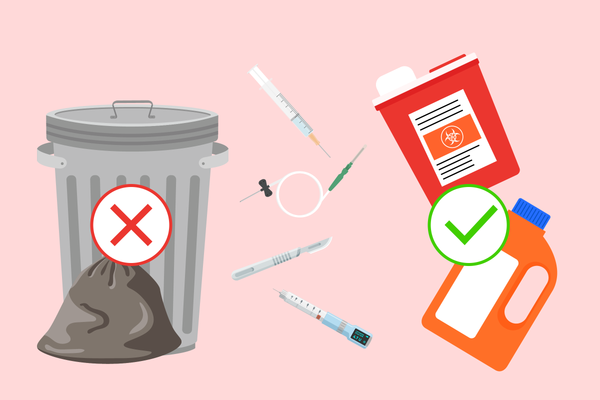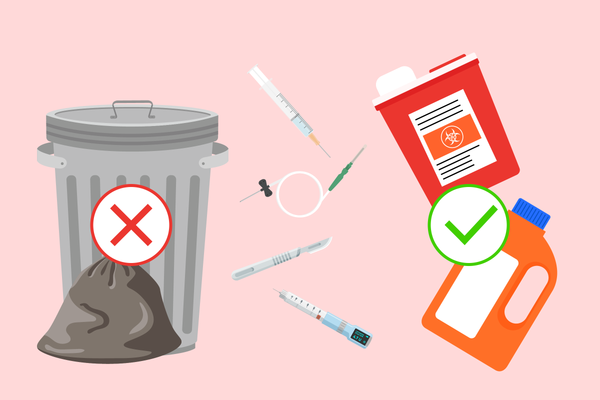Asking whether your medications are doing what they are supposed to be doing may seem like a very simple question with a simple yes or no answer.
But the answer may not be so obvious.
Can you link a specific medical condition or symptom to each medication you take? Can you describe the risks and benefits of each one? How do you really know if a medication is working as expected?
Much of what I have been blogging about so far has emphasized the risk of taking a lot of medications. Knowing the potential risks of medications is hugely important and may be the single most important reason to convince you to either stop a medication or not start one. Read more about Polypharmacy: A Totally Modern Epidemic.
But I haven't written much about the benefits side to medications—the very reason you may be taking them in the first place. Ironically, many people don't even know exactly why they are taking certain medications, let alone know if they are working as planned.
Specifically, have you asked yourself, "What goal are you hoping to achieve with each medication you take?"
Knowing you have the right match between your medical condition and your medication means you and your health care professional have considered four things:
- What do the scientific evidence and expert guidelines say about treating a condition or symptom in my circumstances?
- How will taking this medication help me achieve my goals or treat what matters?
- How can I monitor the condition to see that the medication is achieving my goal?
- How do I know if I am having side effects or adverse reactions to the medication?
For example, the scientific evidence for treating diabetes or high blood pressure came from research studies focused on young relatively healthy patients and not on older adults. What does the research say about treating someone older who also has multiple other conditions as well?
Often, we just don't know the best way to treat older adults with multiple problems who may be taking multiple medications.
The best medication mix for someone who is old or nearing the end of their life may be very different than for someone who is taking medication to ward off a single disease and wants to live as long and as well as possible.
What should always be at the heart of any medication or treatment decision you make is that you consider what matters to you. You know your health preferences and priorities.
You may want to refer to my earlier blog where I discussed the importance of knowing your health priorities and knowing what matters to you. You need to ask yourself if a medication is worth the risk. Only you can really answer that question.
I developed a daily and occasional medication form years ago as part of my Savard Health Record System. The form prompts users to list not only the name and dose/timing of the medication but also includes knowing why you started the medication and the target goal that you are trying to achieve. This form was developed because I knew how important it was for my patients to take responsibility for knowing exactly what the medication was for and how they could best monitor the condition or symptom to see that the medication was working.
Do you know the target goal you are trying to achieve with a medication? Can you measure it, and do you track this goal over time? Have you ever asked to have a medication stopped or the dose adjusted because of your monitoring? Sadly, too few people ask these important questions because they have been trained to believe that their health care professional is too busy and, anyway, "Doctors always know best."
It's so important to know not only what a medication is for but how to monitor the condition or symptom to see if the medication is working.
If you are taking a medication to relieve annoying symptoms such as heartburn, you probably know whether it is working or not. Your heartburn not only gets better, it will often disappear. In the case of treating symptoms, the question to ask about a specific medication is how long can I safely take this if it helps me and when should I stop? What are better or safer things I can do to avoid or treat the problem in the future?
I talked about the benefits and risks of taking long-term acid blockers such as Prilosec in an earlier post. For most people with heartburn, using Prilosec or other potent acid blockers for up to eight weeks is OK. But at that point, continuing lifestyle changes such as avoiding late-night eating should take the place of the medication for most people.
Treating medical conditions that don't usually cause symptoms, such as high blood pressure, is another matter. Knowing that a medication you take will lower your blood pressure is not enough. You need to know the target blood pressure you are trying to achieve—how low or how high can you safely let your blood pressure go on medication. And if you can, you need to monitor your blood pressure yourself. A good and easy to use home monitor is the Omron digital monitor.
If you are an older adult who is taking medication for high blood pressure, treating your blood pressure will be important to you, but staying safe and living independently is likely your highest priority.
Even brief episodes of low blood pressure can lead to dizziness and dangerous falls. Avoiding low blood pressure is far more important than occasional high blood pressure readings. Knowing what the safest blood pressure reading for you is important.
I often hear my internist husband on the phone with a worried patient who is calling about one or more high blood pressure readings. He often reminds them that an occasional high blood pressure reading is far less worrying or dangerous than a low one.
It takes months to years of continuous high blood pressure to cause serious problems. But it can take only a few minutes of lightheadedness or dizziness to fall and break your hip when your blood pressure is too low and you stand up quickly. Read more about the hazards of low blood pressure.
Knowing your medication target goal is not just important for older adults. We all need to size up what we take and confirm that everything we take treats a condition that matters to us, is safe, can't be replaced with a safer alternative, and, of course, is working as anticipated.
You may be taking a medication for a condition or for symptoms that are no longer present. If you had chronic heartburn, do you still need the Prilosec now that you have lost weight and avoid eating or drinking late at night?
If you are taking medication to lower your bad or low-density cholesterol (LDL or unhealthy cholesterol), what is your target goal for the LDL cholesterol? Do you know what your LDL cholesterol test result is? Have you achieved your goal? Do you have any side effects? Does the dose of the medication need to be changed or a different medication tried?
What if you are having troublesome symptoms? Can you link your symptoms with a medication side effect? Often the symptoms or side effects are not easily linked to one specific medication but rather due to the combination of all of them.
Any medication can cause any symptom. Don't be fooled just because a symptom doesn't appear on a list of side effects for a particular medication.
Most research and tools for spotting harmful medication interactions involve the comparison of only two medications. Medstopper.com is one helpful tool, but no tool or chart can reliably predict the potentially bad effects of taking multiple medications.
To make things more complicated, every medication has the potential to react differently in each person. And even if a medication has worked safely for years, as we age and our metabolism and health condition changes, medications that worked well may no longer work or be safe for us.
Artificial intelligence is helping us to sort out what could happen when taking multiple medications. But for now, often the only way to know whether or not a symptom is a drug side effect is to temporarily stop the drug(s) if your doctor agrees.
I talked about this common saying in medicine before but it can't be said too often:
Any symptom in an older adult on multiple medications should be considered a medication side effect until proven otherwise.
Can you match each condition you have with the medication you take? Are you taking medication you may no longer need? Are you having troubling side effects but not sure which, if any, of your medication may be causing it?
Marie Savard, MD, is a trusted voice on women's health, wellness and patient empowerment. She currently writes a blog called Ask Dr. Marie, where this column first appeared. Her blog focuses on the challenges of medication overload in older adults and what caregivers can do to help. Dr. Savard is a former ABC News Medical Contributor and author of four books including her most recent, Ask Dr Marie: What Women Must Know about Hormones, Libido, and the Medical Problems No One Talks About. She lives in Philadelphia with her physician husband and has three grown sons.







